Discover Choiceology with Katy Milkman
Choiceology with Katy Milkman

Choiceology with Katy Milkman
Author: Charles Schwab
Subscribed: 7,583Played: 202,074Subscribe
Share
© 2026 Charles Schwab & Co., Inc. All rights reserved. Member SIPC. Unauthorized access is prohibited. Usage will be monitored.
Description
Can we learn to make smarter choices? Listen in as host Katy Milkman--behavioral scientist, Wharton professor, and author of How to Change--shares stories of high-stakes decisions and what research reveals they can teach us. Choiceology, an original podcast from Charles Schwab, explores the lessons of behavioral economics to help you improve your judgment and change for good.
Season 1 of Choiceology was hosted by Dan Heath, bestselling author of Made to Stick and Switch.
Podcasts are for informational purposes only. This channel is not monitored by Charles Schwab. Please visit schwab.com/contactus for contact options. (0321-1S88)
Season 1 of Choiceology was hosted by Dan Heath, bestselling author of Made to Stick and Switch.
Podcasts are for informational purposes only. This channel is not monitored by Charles Schwab. Please visit schwab.com/contactus for contact options. (0321-1S88)
107 Episodes
Reverse
As a special addition to this week's episode, you can see Katy's full sit-down interview with Angela Duckworth, where they also explore the relationship between self-control and grit.Watch or listen to their conversation on YouTube or Spotify.When your emotions flare or temptation calls, what does it take to hold back? Whether it’s resisting the urge to lash out or the pull of short-term pleasure in favor of long-term goals, self-control can be one of the hardest—and most important—skills we ever learn.In this episode of Choiceology with Katy Milkman, we explore the power and limits of self-control. You'll hear how legendary baseball player Jackie Robinson changed the course of history not just with his athletic talent, but through extraordinary composure in the face of hatred. Dr. Yohuru Williams is a professor of history and the founding director of the Racial Justice Initiative at the University of St. Thomas. He is also the co-author of Call Him Jack: The Story of Jackie Robinson, Black Freedom Fighter. He explains how Jackie Robinson's restraint and strategic discipline helped dismantle racial barriers in Major League Baseball—and why his quiet strength was anything but passive.Then, Katy sits down with psychologist and Grit author Dr. Angela Duckworth, a leading expert on self-control. She breaks down what science tells us about managing impulses, why willpower by itself falls short, and how simple environmental tweaks and practical strategies can help anyone delay gratification and make smarter choices.Choiceology is an original podcast from Charles Schwab. For more on the show, visit schwab.com/Choiceology.If you enjoy the show, please leave a rating or review on Apple Podcasts.Important DisclosuresThe comments, views, and opinions expressed in the presentation are those of the speakers and do not necessarily represent the views of Charles Schwab.This material is intended for general, informational and educational purposes only. Data contained herein from third party providers is obtained from what are considered reliable sources. However, its accuracy, completeness or reliability cannot be guaranteed.All corporate names and market data shown above are for illustrative purposes only and are not a recommendation, offer to sell, or a solicitation of an offer to buy any security. Investing involves risk including loss of principal.This material contains links to content that is available on third-party websites. Schwab is not responsible for the content and does not provide, edit, or endorse any of the content.The books How to Change: The Science of Getting from Where You Are to Where You Want to Be, Call Him Jack: The Story of Jackie Robinson, Black Freedom Fighter, and Grit are not affiliated with, sponsored by, or endorsed by Charles Schwab & Co., Inc. (CS&Co.). Charles Schwab & Co., Inc. (CS&Co.) has not reviewed the books and makes no representations about its content.© 2025 Charles Schwab & Co., Inc. All rights reserved. Member SIPC1025-XWCS Hosted by Simplecast, an AdsWizz company. See pcm.adswizz.com for information about our collection and use of personal data for advertising.
In this bonus addition of Choiceology, Katy Milkman sits down with psychologist and Grit author Dr. Angela Duckworth, a leading expert on self-control. She breaks down what science tells us about managing impulses, why willpower by itself falls short, and how simple environmental tweaks and practical strategies can help anyone delay gratification and make smarter choices.Katy and Angela's conversation is featured in the Choiceology episode "Playing the Long Game: The Power of Self-Control," now available in your favorite podcast app. Choiceology is an original podcast from Charles Schwab. For more on the show, visit schwab.com/Choiceology.If you enjoy the show, please leave a rating or review on Apple Podcasts.Important DisclosuresThe comments, views, and opinions expressed in the presentation are those of the speakers and do not necessarily represent the views of Charles Schwab.This material is intended for general, informational and educational purposes only. Data contained herein from third party providers is obtained from what are considered reliable sources. However, its accuracy, completeness or reliability cannot be guaranteed.All corporate names and market data shown above are for illustrative purposes only and are not a recommendation, offer to sell, or a solicitation of an offer to buy any security. Investing involves risk including loss of principal.This material contains links to content that is available on third-party websites. Schwab is not responsible for the content and does not provide, edit, or endorse any of the content.The book Grit is not affiliated with, sponsored by, or endorsed by Charles Schwab & Co., Inc. (CS&Co.). Charles Schwab & Co., Inc. (CS&Co.) has not reviewed the books and makes no representations about its content.1025-XWCS Hosted by Simplecast, an AdsWizz company. See pcm.adswizz.com for information about our collection and use of personal data for advertising.
Most of us label ourselves early on as academic (or not), athletic (or not), or talented (or not). But even if you feel like you're lacking in natural talent or ability in certain areas, approaching new skills or challenges with openness, effort, and curiosity can take you farther than you might expect.In this episode of Choiceology with Katy Milkman, we look at the stories we tell ourselves about our abilities—and how to create conditions that can shape our trajectories for growth and achievement.You'll hear from Donna Ferguson, a freelance journalist with The Guardian and The Observer, along with a couple of adults from a piece she wrote about embracing learning new skills and personal growth later in life. Then, Katy speaks with Mary Murphy, a professor of psychological and brain sciences at Indiana University, where she conducts pioneering research on motivation, performance, and the distinction between growth and fixed mindsets. Murphy is the author of the book Cultures of Growth: How the New Science of Mindset Can Transform Individuals, Teams, and Organizations. Her mentor is Carol Dweck, author of the book Mindset: The New Psychology of Success.Choiceology is an original podcast from Charles Schwab. For more on the show, visit schwab.com/podcast.If you enjoy the show, please leave a rating or review on Apple Podcasts.Important DisclosuresThe comments, views, and opinions expressed in the presentation are those of the speakers and do not necessarily represent the views of Charles Schwab.This material is intended for general, informational and educational purposes only. Data contained herein from third party providers is obtained from what are considered reliable sources. However, its accuracy, completeness or reliability cannot be guaranteed.Asset allocation strategies do not ensure a profit and do not protect against losses in declining markets.All corporate names and market data shown above are for illustrative purposes only and are not a recommendation, offer to sell, or a solicitation of an offer to buy any security. The policy analysis provided by the Charles Schwab & Co., Inc., does not constitute and should not be interpreted as an endorsement of any political party.Investing involves risk including loss of principal.The books How to Change: The Science of Getting from Where You Are to Where You Want to Be, Cultures of Growth: How the New Science of Mindset can Transform Individuals, Teams, and Organizations, Mindset: The New Psychology of Success, The Seven Habits of Highly Effective People, and Grit are not affiliated with, sponsored by, or endorsed by Charles Schwab & Co., Inc. (CS&Co.). Charles Schwab & Co., Inc. (CS&Co.) has not reviewed the books and makes no representations about its content.1025-R4A6 Hosted by Simplecast, an AdsWizz company. See pcm.adswizz.com for information about our collection and use of personal data for advertising.
If you've ever gotten well into a project—maybe a DIY renovation—and then realized that you've taken the wrong approach, you probably know that it's very tempting to just stay the course. Starting all over again would be so painful, even if starting over is clearly the best option.Or maybe you've taken a wrong turn on a hike and only noticed it a mile later. You know the dread of going back. Even if turning around is the smartest option, there's a strong pull to just keep moving forward.In this episode of Choiceology with Katy Milkman, we explore why people push ahead, even when a better path is available.You'll hear the epic story of the building of the Panama Canal—and the high cost of not starting over when setbacks kept mounting.Then, Katy speaks with Berkeley Haas ProfessorClayton Critcher about what he and collaborator Kristine Cho have dubbed doubling-back aversion and how it can affect many different decisions in our lives. Choiceology is an original podcast from Charles Schwab. For more on the show, visit schwab.com/podcast.If you enjoy the show, please leave a rating or review on Apple Podcasts.Important DisclosuresThe comments, views, and opinions expressed in the presentation are those of the speakers and do not necessarily represent the views of Charles Schwab.This material is intended for general, informational and educational purposes only. Data contained herein from third party providers is obtained from what are considered reliable sources. However, its accuracy, completeness or reliability cannot be guaranteed.All corporate names and market data shown above are for illustrative purposes only and are not a recommendation, offer to sell, or a solicitation of an offer to buy any security. The policy analysis provided by the Charles Schwab & Co., Inc., does not constitute and should not be interpreted as an endorsement of any political party.Investing involves risk including loss of principal.The book How to Change: The Science of Getting from Where You Are to Where You Want to Be is not affiliated with, sponsored by, or endorsed by Charles Schwab & Co., Inc. (CS&Co.). Charles Schwab & Co., Inc. (CS&Co.) has not reviewed the books and makes no representations about its content.0925-G56M Hosted by Simplecast, an AdsWizz company. See pcm.adswizz.com for information about our collection and use of personal data for advertising.
What makes an effective team? Talent? Skill? Discipline?In this episode of Choiceology with Katy Milkman, we're looking at some of the more surprising ingredients of successful teams, according to science. Teams where the whole is greater than the sum of its parts.You'll hear the story of the Kon-Tiki expedition—a harrowing journey across the Pacific Ocean led by Norwegian explorer Thor Heyerdahl. A journey made by a small band of adventurers who set out to understand ancient human migration. They were young. Most were inexperienced. But they had enthusiasm, a range of talents and personalities, camaraderie, and a clear and vivid goal. You'll hear from Liv Hukset Wang from the Kon-Tiki Museum in Oslo, who works with Heyerdahl's grandchildren to keep his legacy alive.Then, Katy speaks with University College London professor Colin Fisher about his new book on team synergy. You'll hear his recipe for building teams that excel and his tips for avoiding the pitfalls of social loafing.Choiceology is an original podcast from Charles Schwab. For more on the show, visit schwab.com/podcast.If you enjoy the show, please leave a rating or review on Apple Podcasts.Important DisclosuresThe comments, views, and opinions expressed in the presentation are those of the speakers and do not necessarily represent the views of Charles Schwab.Data contained herein from third party providers is obtained from what are considered reliable sources. However, its accuracy, completeness or reliability cannot be guaranteed.All corporate names and market data shown above are for illustrative purposes only and are not a recommendation, offer to sell, or a solicitation of an offer to buy any security. The policy analysis provided by the Charles Schwab & Co., Inc., does not constitute and should not be interpreted as an endorsement of any political party.Investing involves risk including loss of principal.The books How to Change: The Science of Getting from Where You Are to Where You Want to Be and The Collective Edge Unlocking The Secret Power of Groups are not affiliated with, sponsored by, or endorsed by Charles Schwab & Co., Inc. (CS&Co.). Charles Schwab & Co., Inc. (CS&Co.) has not reviewed the books and makes no representations about its content.0925-AC4P Hosted by Simplecast, an AdsWizz company. See pcm.adswizz.com for information about our collection and use of personal data for advertising.
We've all been there. Maybe you fumbled a line in a presentation. Or tripped on a shoelace. Or suffered a bad hair day. It can feel like the whole world is watching you—and judging you—in those embarrassing moments. But are people paying as much attention to you as you think?In this episode of Choiceology with Katy Milkman, we explore why we tend to blow our own missteps out of proportion.We go behind the scenes of some of the most consequential speeches of World War II. Speeches given by a man who was consumed with fear about how his stutter would be received by the public. Author and historian Adrian Phillips gives us new insights about King George VI's struggles with his diction and the effect his addresses had on the people of Great Britain during the darkest days of the war.We also hear from Seth Tichenor, an assistant professor and program director at the Duquesne University Stuttering Clinic, who helps us understand what it's like to navigate a public role with a stutter.Finally, Katy speaks with Cornell psychologist Tom Gilovich about how he and his fellow researchers demonstrated that—more often than not—our mistakes and foibles barely register with those around us.Choiceology is an original podcast from Charles Schwab. For more on the show, visit schwab.com/podcast.If you enjoy the show, please leave a rating or review on Apple Podcasts.Important DisclosuresThe comments, views, and opinions expressed in the presentation are those of the speakers and do not necessarily represent the views of Charles Schwab.Data contained herein from third party providers is obtained from what are considered reliable sources. However, its accuracy, completeness or reliability cannot be guaranteed.All corporate names and market data shown above are for illustrative purposes only and are not a recommendation, offer to sell, or a solicitation of an offer to buy any security. The policy analysis provided by the Charles Schwab & Co., Inc., does not constitute and should not be interpreted as an endorsement of any political party.Investing involves risk including loss of principal.The books How to Change: The Science of Getting from Where You Are to Where You Want to Be, The King Who Had to Go, From Churchill to Eden , The Wisest One in the Room and How We Know What Isn't So are not affiliated with, sponsored by, or endorsed by Charles Schwab & Co., Inc. (CS&Co.). Charles Schwab & Co., Inc. (CS&Co.) has not reviewed the books and makes no representations about its content.(0825-1UGU) Hosted by Simplecast, an AdsWizz company. See pcm.adswizz.com for information about our collection and use of personal data for advertising.
You've probably been in situations where multiple friends recommend the same product. It must be great, if everyone is talking about it, right? But then you find out that those friends had all just seen the same product on a popular TV show. What seemed like independent recommendations really came from a single source.In this episode of Choiceology with Katy Milkman, we consider the consequences of missing out on the true source of information when we're exposed to that information through multiple channels.Joe Schwarcz tells the story of two-time Nobel laureate Linus Pauling and his obsession with the healing powers of vitamin C. Pauling was a venerated and accomplished chemist, so when he wrote the book Vitamin C and the Common Cold, the world took note. His claims about the health benefits of vitamin C were echoed innumerable times by health writers and influential figures in books and magazines and TV commercials. The problem was, there was little evidence to support those claims.Joe Schwarcz is the director of the Office for Science and Society at McGill University, where he is also a professor of chemistry.Next, Katy speaks with Florian Zimmermann about the dangers of mistaking multiple sources of information as independent. Florian Zimmerman is a professor of economics at the University of Bonn who, along with Harvard economist Benjamin Enke, uncovered the problem of correlation neglect.Choiceology is an original podcast from Charles Schwab. For more on the show, visit schwab.com/podcast.If you enjoy the show, please leave a rating or review on Apple Podcasts.Important DisclosuresThe comments, views, and opinions expressed in the presentation are those of the speakers and do not necessarily represent the views of Charles Schwab.Data contained herein from third party providers is obtained from what are considered reliable sources. However, its accuracy, completeness or reliability cannot be guaranteed.All corporate names and market data shown above are for illustrative purposes only and are not a recommendation, offer to sell, or a solicitation of an offer to buy any security. The policy analysis provided by the Charles Schwab & Co., Inc., does not constitute and should not be interpreted as an endorsement of any political party.Investing involves risk including loss of principal.The book How to Change: The Science of Getting from Where You Are to Where You Want to Be is not affiliated with, sponsored by, or endorsed by Charles Schwab & Co., Inc. (CS&Co.). Charles Schwab & Co., Inc. (CS&Co.) has not reviewed the books and makes no representations about its content.0825-VH6M Hosted by Simplecast, an AdsWizz company. See pcm.adswizz.com for information about our collection and use of personal data for advertising.
It's a new season of Choiceology, an original podcast from Charles Schwab. New episodes arrive every two weeks, so please follow us in your favorite podcasting app.Important DisclosuresThe comments, views, and opinions expressed in the podcast are those of the speakers and do not necessarily represent the views of Charles Schwab.Data contained herein from third party providers is obtained from what are considered reliable source. However, its accuracy, completeness or reliability cannot be guaranteed and Charles Schwab & Co. expressly disclaims any liability, including incidental or consequential damages, arising from errors or omissions in this publication. All corporate names and market data shown above are for illustrative purposes only and are not a recommendation, offer to sell, or a solicitation of an offer to buy any security. Investing involves risk, including loss of principal.The book How to Change: The Science of Getting from Where You Are to Where You Want to Be is not affiliated with, sponsored by, or endorsed by Charles Schwab & Co., Inc. (CS&Co.). Charles Schwab & Co., Inc. (CS&Co.) has not reviewed the books and makes no representations about its content.0725-PKW2 Hosted by Simplecast, an AdsWizz company. See pcm.adswizz.com for information about our collection and use of personal data for advertising.
Were you the kind of kid who devoured all your Halloween candy in one sitting—or savored it daily until, somehow, it was Easter? And when it comes to bad news, do you prefer it all at once or with some time in between? Turns out, the way we bundle or separate life's highs and lows can influence our happiness. In this episode of Choiceology with Katy Milkman, we consider a mental accounting trick that can help maximize joy and minimize pain. You'll hear from Sally Millington of York, U.K., who set out to try 52 new things in a year. From the silly to the daring, Sally shares how shifting from saving fun for vacations to spreading it throughout the year transformed her outlook—and boosted her well-being. Her story shows the power of intentionally pacing pleasure—and why we might want to do the opposite with unpleasant experiences.Then, Katy speaks with Ellen Evers, Associate Professor of Marketing at the Haas School of Business at the University of California, Berkeley, whose research touches on how the way we categorize experiences can make everyday life feel a little better. Choiceology is an original podcast from Charles Schwab. For more on the show, visit schwab.com/podcast.If you enjoy the show, please leave a rating or review on Apple Podcasts.Important DisclosuresThe comments, views, and opinions expressed in the presentation are those of the speakers and do not necessarily represent the views of Charles Schwab.Data contained herein from third party providers is obtained from what are considered reliable source. However, its accuracy, completeness or reliability cannot be guaranteed and Charles Schwab & Co. expressly disclaims any liability, including incidental or consequential damages, arising from errors or omissions in this publication. All corporate names and market data shown above are for illustrative purposes only and are not a recommendation, offer to sell, or a solicitation of an offer to buy any security. The policy analysis provided by the Charles Schwab & Co., Inc., does not constitute and should not be interpreted as an endorsement of any political party.Investing involves risk including loss of principal.The book How to Change: The Science of Getting from Where You Are to Where You Want to Be isnot affiliated with, sponsored by, or endorsed by Charles Schwab & Co., Inc. (CS&Co.). Charles Schwab & Co., Inc. (CS&Co.) has not reviewed the books and makes no representations about its content.0625-1RA3 Hosted by Simplecast, an AdsWizz company. See pcm.adswizz.com for information about our collection and use of personal data for advertising.
Would you pay more for a car with 29,999 miles than one with 30,000? The answer should be no—it's a negligible difference, after all—but research shows that people often do pay more than they should for cars that are just short of certain odometer thresholds.In this episode of Choiceology with Katy Milkman, we look at why a price or an age or a test score that falls just under a round number has an outsized impact on our decisions. We hear from Melina Palmer, author of The Truth About Pricing, as she unpacks how the launch of iTunes—and its iconic per-song price—reshaped the music industry. Joshua Freedman, host of the Rapaport Diamond Podcast, explains why stones just shy of round carat weights are in high demand. And Bapu Jena, the host of the podcast Freaknomics M.D. and co-author of the book Random Acts of Medicine, reveals how deeply numbers shape medical decisions—and what that means for patients. Next, Katy speaks with Devin Pope, the Steven G. Rothmeier Professor of Behavioral Science and Economics at the Booth School of Business at the University of Chicago. Devin researches a variety of topics at the intersection of economics and psychology. In this episode, he shares his research involving cars–what we'll pay for them, what we pay to ride in them, and why. Important DisclosuresThe comments, views, and opinions expressed in the presentation are those of the speakers and do not necessarily represent the views of Charles Schwab.Data contained herein from third party providers is obtained from what are considered reliable source. However, its accuracy, completeness or reliability cannot be guaranteed and Charles Schwab & Co. expressly disclaims any liability, including incidental or consequential damages, arising from errors or omissions in this publication. All corporate names and market data shown above are for illustrative purposes only and are not a recommendation, offer to sell, or a solicitation of an offer to buy any security. The policy analysis provided by the Charles Schwab & Co., Inc., does not constitute and should not be interpreted as an endorsement of any political party.Investing involves risk including loss of principal.The books How to Change: The Science of Getting from Where You Are to Where You Want to Be, The Truth About Pricing, and Random Acts of Medicine are not affiliated with, sponsored by, or endorsed by Charles Schwab & Co., Inc. (CS&Co.). Charles Schwab & Co., Inc. (CS&Co.) has not reviewed the books and makes no representations about its content.(0525-WRWH) Hosted by Simplecast, an AdsWizz company. See pcm.adswizz.com for information about our collection and use of personal data for advertising.
Streaks have long been logged in the world of sports. And for tracking habits, like daily writing. But now apps encourage us to keep streaks going for just about anything. Messaging friends, learning new languages, meditating, exercising, you name it. In this episode of Choiceology with Katy Milkman, we explore the motivational power of streaks. And we look at ways to alleviate the demotivating effects of breaking a streak. We speak with journalist Chloë Hamilton, who wrote a story for The Guardian about how a daily ritual can enrich your life or become an unhealthy obsession. Chloë heard from a range of people logging streaks—from daily language practice to simply kissing their partner each morning. One of the more extreme examples included runner Tom Vickery, who has run every day since August 2019. And not just in rain or shine, but after 200 mile runs, in sickness and health, even on a vacation, which included laps on a ferry boat. Next, Katy speaks with Jackie Silverman, an assistant professor of marketing at the University of Delaware, where she studies consumer behavior and streaks. Her research shows that people often adopt a "streak-keeping" goal in addition to their original motivation for an activity. Breaking a streak can be demotivating due to the feeling of goal failure and loss aversion. Silverman suggests that apps and individuals should emphasize intact streaks, downplay broken ones, and offer opportunities for "streak repair"—or flexibility to help people recover and stay motivated. Choiceology is an original podcast from Charles Schwab. For more on the show, visit https://schwab.com/Choiceology.If you enjoy the show, please leave a rating or review on Apple Podcasts.Important DisclosuresThe comments, views, and opinions expressed in the presentation are those of the speakers and do not necessarily represent the views of Charles Schwab.Data contained herein from third party providers is obtained from what are considered reliable source. However, its accuracy, completeness or reliability cannot be guaranteed and Charles Schwab & Co. expressly disclaims any liability, including incidental or consequential damages, arising from errors or omissions in this publication. All corporate names and market data shown above are for illustrative purposes only and are not a recommendation, offer to sell, or a solicitation of an offer to buy any security. Automatic investing strategies do not ensure a profit and do not protect against losses in declining markets.Investing involves risk including loss of principal.The books How to Change: The Science of Getting from Where You Are to Where You Want to Beis not affiliated with, sponsored by, or endorsed by Charles Schwab & Co., Inc. (CS&Co.). Charles Schwab & Co., Inc. (CS&Co.) has not reviewed the book and makes no representations about its content.Apple, the Apple logo, iPad, iPhone, and Apple Podcasts are trademarks of Apple Inc., registered in the U.S. and other countries. App Store is a service mark of Apple Inc.Spotify and the Spotify logo are registered trademarks of Spotify AB.0525-PM4V Hosted by Simplecast, an AdsWizz company. See pcm.adswizz.com for information about our collection and use of personal data for advertising.
First-born children tend to believe that their parents were harder on them than their siblings are willing to grant. Football fans take disproportionate note of the challenging games on their team's schedules. We're wired to interpret our challenges as bigger than our advantages, even if the reality is more balanced.In this episode of Choiceology with Katy Milkman, we consider our tendency to focus more attention on our negative or challenging experiences than on our positive or easy ones. This asymmetry also appears in how we remember the lives and experiences of other people. Daniella McCahey is co-author of Antarctica: A History in 100 Objects and an assistant professor in history at Texas Tech University. She shares the harrowing adventures of one of Antarctica's most famous explorers, Richard E. Byrd. Byrd is credited with being the first to fly over the North and South Poles in the 1920s. He led five expeditions to Antarctica, including one where he nearly died. Byrd was truly a remarkable polar explorer and aviation pioneer, but also someone born into many advantages. Next, Katy speaks with Tom Gilovich, the Irene Blecker Rosenfeld Professor of Psychology at Cornell University. Gilovich identified what is now known as the headwinds/tailwinds asymmetry. He's also the author of the books The Wisest One in the Roomand How We Know What Isn't So. Choiceology is an original podcast from Charles Schwab. If you enjoy the show, please leave a rating or review on Apple Podcasts.Important DisclosuresThe comments, views, and opinions expressed in the presentation are those of the speakers and do not necessarily represent the views of Charles Schwab.Data contained herein from third party providers is obtained from what are considered reliable source. However, its accuracy, completeness or reliability cannot be guaranteed and Charles Schwab & Co. expressly disclaims any liability, including incidental or consequential damages, arising from errors or omissions in this publication. All corporate names and market data shown above are for illustrative purposes only and are not a recommendation, offer to sell, or a solicitation of an offer to buy any security. The policy analysis provided by the Charles Schwab & Co., Inc., does not constitute and should not be interpreted as an endorsement of any political party.Investing involves risk including loss of principal.The books How to Change: The Science of Getting from Where You Are to Where You Want to Be, Alone: The Classic Polar Adventure, The Wisest One in the Room and How We Know What Isn't So are not affiliated with, sponsored by, or endorsed by Charles Schwab & Co., Inc. (CS&Co.). Charles Schwab & Co., Inc. (CS&Co.) has not reviewed the books and makes no representations about its content.(0425-KDX9) Hosted by Simplecast, an AdsWizz company. See pcm.adswizz.com for information about our collection and use of personal data for advertising.
Is it ever possible to see the world objectively, as it is? Turn on the news, open social media, engage with that family member at Thanksgiving, and it appears to some the answer is yes. But what if our biggest blind spot is thinking we don't have a blind spot? In this episode of Choiceology with Katy Milkman, we look at how we can easily be fooled into believing that our subjective experience of the world is objective, and believing that anyone who disagrees with us must be biased or wrong.We consider how this was part of the interaction between world leaders Ronald Reagan and Mikhail Gorbachev at a high-stakes nuclear summit in 1986. Ken Adelman was the arms control director in the Reagan administration at the time and was with Reagan at this historic summit. His book Reykjavik: Forty-Eight Hours That Ended the Cold War details how these politicians with opposing world views came together as men. Next, Katy speaks with Julia Minson, an associate professor of public policy at the Harvard Kennedy School of Government. She is a decision scientist with research interests in conflict management, negotiations, and judgment and decision-making. Her main line of research addresses the "psychology of disagreement"—how do people engage with opinions, values, and judgments that conflict with their own?Important DisclosuresThe comments, views, and opinions expressed in the presentation are those of the speakers and do not necessarily represent the views of Charles Schwab.Data contained herein from third party providers is obtained from what are considered reliable source. However, its accuracy, completeness or reliability cannot be guaranteed and Charles Schwab & Co. expressly disclaims any liability, including incidental or consequential damages, arising from errors or omissions in this publication. All corporate names and market data shown above are for illustrative purposes only and are not a recommendation, offer to sell, or a solicitation of an offer to buy any security. The policy analysis provided by the Charles Schwab & Co., Inc., does not constitute and should not be interpreted as an endorsement of any political party.Investing involves risk including loss of principal.The books How to Change: The Science of Getting from Where You Are to Where You Want to Be and Reykjavik: Forty-Eight Hours That Ended the Cold War are not affiliated with, sponsored by, or endorsed by Charles Schwab & Co., Inc. (CS&Co.). Charles Schwab & Co., Inc. (CS&Co.) has not reviewed the books and makes no representations about its content.(0425-DLMP) Hosted by Simplecast, an AdsWizz company. See pcm.adswizz.com for information about our collection and use of personal data for advertising.
Workplaces often rely on numerical ratings for performance reviews. Election debates focus on poll numbers and approval ratings. Your watch counts your steps in a day. Numbers increasingly influence our decisions.In this episode of Choiceology with Katy Milkman, we look at our very human tendency to fixate on digits even when words or graphs represent the very same information. Stephen M. Colbert writes about movies and the film industry and shares the heated story of when the DC Extended Universe came up against some unfavorable Rotten Tomatoes scores. You'll hear about a battle of wills between a famous director, some powerful studio executives, and a legion of fans, proving that numbers don't tell the whole story. Next, Katy speaks with Linda Chang, a behavioral scientist at the Toyota Research Institute and former MindCORE post-doctoral research fellow at the University of Pennsylvania. Katy and Linda, together with University of Chicago Professor Erika Kirgios and MIT Professor Sendhil Mullainathan, worked on the paper "Does Counting Change What Counts? Quantification Fixation Biases Decision-Making."Important DisclosuresThe comments, views, and opinions expressed in the presentation are those of the speakers and do not necessarily represent the views of Charles Schwab.Data contained herein from third party providers is obtained from what are considered reliable source. However, its accuracy, completeness or reliability cannot be guaranteed and Charles Schwab & Co. expressly disclaims any liability, including incidental or consequential damages, arising from errors or omissions in this publication.All corporate names and market data shown above are for illustrative purposes only and are not a recommendation, offer to sell, or a solicitation of an offer to buy any security. Supporting documentation for any claims or statistical information is available upon request.Investing involves risk including loss of principal.The book How to Change: The Science of Getting from Where You Are to Where You Want to Be is not affiliated with, sponsored by, or endorsed by Charles Schwab & Co., Inc. (CS&Co.). Charles Schwab & Co., Inc. (CS&Co.) has not reviewed the book and makes no representations about its content.(0325-8K30) Hosted by Simplecast, an AdsWizz company. See pcm.adswizz.com for information about our collection and use of personal data for advertising.
It’s a new season of Choiceology, an original podcast from Charles Schwab. New episodes arrive every two weeks, so please follow us in your favorite podcasting app. Important DisclosuresThe comments, views, and opinions expressed in the presentation are those of the speakers and do not necessarily represent the views of Charles Schwab.Data contained herein from third party providers is obtained from what are considered reliable source. However, its accuracy, completeness or reliability cannot be guaranteed and Charles Schwab & Co. expressly disclaims any liability, including incidental or consequential damages, arising from errors or omissions in this publication. All corporate names and market data shown above are for illustrative purposes only and are not a recommendation, offer to sell, or a solicitation of an offer to buy any security. Supporting documentation for any claims or statistical information is available upon request.Investing involves risk including loss of principal.The book How to Change: The Science of Getting from Where You Are to Where You Want to Be is not affiliated with, sponsored by, or endorsed by Charles Schwab & Co., Inc. (CS&Co.). Charles Schwab & Co., Inc. (CS&Co.) has not reviewed the book and makes no representations about its content.(0325-43AS) Hosted by Simplecast, an AdsWizz company. See pcm.adswizz.com for information about our collection and use of personal data for advertising.
Luke Skywalker, Frodo Baggins, Katniss Everdeen, the main characters of many great stories, they all have one thing in common: the shape of their journey. From answering the call to adventure, to undergoing tests of character and strengths, to triumphantly returning home forever changed. It's a classic narrative structure that's inspired countless tales from ancient myths to modern media. But it's not just great for entertainment. In this episode of Choiceology with Katy Milkman, we look at how this specific type of storytelling can be leveraged to make your life more manageable, exciting, and meaningful. Writer and performer Ethan Gilsdorf has written and spoken about how his childhood obsession with the fantasy role-playing game Dungeons & Dragons saved his life. For David Fajgenbaum, a physician and associate professor of medicine at the University of Pennsylvania, what saved his life was sheer determination and faith, but sharing his story has given new meaning to the incredible feats he's overcome. David is also the co-founder and president of the Castleman Disease Collaborative Network and co-founder and president of Every Cure, a non-profit that helps repurpose drugs for multiple diseases. He's the author of Chasing My Cure: A Doctor's Race to Turn Hope Into Action.Katy speaks with Kurt Gray, a professor of psychology and neuroscience at the University of North Carolina at Chapel Hill, about what happens when you tell the story of your life in the style of a "hero's journey." Kurt directs the Deepest Beliefs Lab and the Center for the Science of Moral Understanding. He's also the author of a new book out in January 2025 called Outraged: Why We Fight About Morality and Politics, which you can pre-order now.Choiceology is an original podcast from Charles Schwab. For more on the show, visit schwab.com/podcast. If you enjoy the show, please leave a rating or review on Apple Podcasts.Important DisclosuresThe comments, views, and opinions expressed in the presentation are those of the speakers and do not necessarily represent the views of Charles Schwab.Data contained herein from third party providers is obtained from what are considered reliable source. However, its accuracy, completeness or reliability cannot be guaranteed and Charles Schwab & Co. expressly disclaims any liability, including incidental or consequential damages, arising from errors or omissions in this publication. All corporate names and market data shown above are for illustrative purposes only and are not a recommendation, offer to sell, or a solicitation of an offer to buy any security. Supporting documentation for any claims or statistical information is available upon request.Investing involves risk including loss of principal.The book How to Change: The Science of Getting from Where You Are to Where You Want to Be is not affiliated with, sponsored by, or endorsed by Charles Schwab & Co., Inc. (CS&Co.). Charles Schwab & Co., Inc. (CS&Co.) has not reviewed the book and makes no representations about its content.{1024-0BGR) Hosted by Simplecast, an AdsWizz company. See pcm.adswizz.com for information about our collection and use of personal data for advertising.
Most parents encounter resistance from their children. Perhaps when the kids are young and turning their noses up at vegetables, or when they're teenagers and balking at curfews or dress codes.So what's the best way to encourage good choices in the face of a rebellious kid? Or a rebellious adult, for that matter?In this episode of Choiceology with Katy Milkman, we look at the surprising ways that resistance to authority can be leveraged for positive change. During the mid 1990s, the "Truth" anti-youth smoking campaign was everywhere. Many TV ads cleverly harnessed the teenage penchant for rebellion, using guerilla filming techniques and revealing hidden truths about smoking known to the tobacco industry for years. The campaign drastically lowered youth smoking rates and remains one of the most effective campaigns in history. Fran Kelly was on the frontlines, leading the advertising campaign at Arnold Worldwide. Francis "Fran" Kelly is the president and CEO of branding consulting firm CEOVIEW Branding. He was previously the president and CEO of global advertising agency Arnold Worldwide.Next, Katy speaks with Christopher Bryan about his research on leveraging rebellion as a way to encourage healthy eating among adolescents. You can learn more in his paper titled "Harnessing Adolescent Values to Motivate Healthier Eating." Christopher Bryan is an associate professor of business, government, and society at the University of Texas at Austin's McCombs School of Business. He is also co-founder and co-director of the Texas Behavioral Science and Policy Institute.Important DisclosuresThe comments, views, and opinions expressed in the presentation are those of the speakers and do not necessarily represent the views of Charles Schwab.Data contained herein from third party providers is obtained from what are considered reliable source. However, its accuracy, completeness or reliability cannot be guaranteed and Charles Schwab & Co. expressly disclaims any liability, including incidental or consequential damages, arising from errors or omissions in this publication. All corporate names and market data shown above are for illustrative purposes only and are not a recommendation, offer to sell, or a solicitation of an offer to buy any security. Supporting documentation for any claims or statistical information is available upon request. Investing involves risk including loss of principal.The book How to Change: The Science of Getting from Where You Are to Where You Want to Be is not affiliated with, sponsored by, or endorsed by Charles Schwab & Co., Inc. (CS&Co.). Charles Schwab & Co., Inc. (CS&Co.) has not reviewed the book and makes no representations about its content.(0824-H4BA) Hosted by Simplecast, an AdsWizz company. See pcm.adswizz.com for information about our collection and use of personal data for advertising.
Do you recall the best concert you ever went to? Best trip? Best meal? Chances are good that a few memories come to mind—maybe not every detail of the event, but perhaps a couple great moments. It can go the opposite way, too. Worst travel experience. Worst date. Our memory works in snapshots of particular parts of our experience.In this episode of Choiceology with Katy Milkman, we look at a predictable distortion in the way people remember experiences. And we’re doing it in part to honor a very special memory: the memory of the great Daniel Kahneman. He was a Nobel laureate, international best-selling author, repeated Choiceology guest, and a co-founder of the field that is at the heart of this show: behavioral economics. Our opinion of an experience is shaped by which parts we remember most. The same can hold true for how we remember people. Matthew Polly is the best-selling author of Bruce Lee: A Life, a biography of the late great Bruce Lee. He retells the story of how this legendary martial artist, actor, and cultural icon is understood in our collective memory. And then he reveals certain nuances in his biography that may change the way you perceive his legacy.Next, Katy speaks with Maurice Schweitzer, the Cecilia Yen Koo Professor of Operations, Information, and Decisions at the Wharton School of Business at the University of Pennsylvania. Maurice explains how this memory distortion can be leveraged to better retain staff, improve your experience at work, have better conversations with colleagues, and even plan a more enjoyable vacation. He's also the author of Friend and Foe: When to Cooperate, When to Compete, and How to Succeed at Both. Important DisclosuresThe comments, views, and opinions expressed in the presentation are those of the speakers and do not necessarily represent the views of Charles Schwab.Data contained herein from third party providers is obtained from what are considered reliable source. However, its accuracy, completeness or reliability cannot be guaranteed and Charles Schwab & Co. expressly disclaims any liability, including incidental or consequential damages, arising from errors or omissions in this publication. All expressions of opinion are subject to change without notice in reaction to shifting market conditions.Investing involves risk including loss of principal.All names and market data shown above are for illustrative purposes only and are not a recommendation, offer to sell, or a solicitation of an offer to buy any security. Supporting documentation for any claims or statistical information is available upon request.The book How to Change: The Science of Getting From Where You Are to Where You Want to Be is not affiliated with, sponsored by, or endorsed by Charles Schwab & Co., Inc. (CS&Co.). Charles Schwab & Co., Inc. (CS&Co.) has not reviewed the book and makes no representations about its content.(0924-U226) Hosted by Simplecast, an AdsWizz company. See pcm.adswizz.com for information about our collection and use of personal data for advertising.
Your car breaks down. Must be because you skipped an oil change last month. Or your favorite team loses. Well, that was because of a bad call by a corrupt referee. In reality, many events involve multiple contributing factors. But we tend to gravitate toward single causes. In this episode of Choiceology with Katy Milkman, we look at our desire to explain things simply, even when the truth may be more complex.Where unidentified flying objects are concerned, there is rarely a simple answer. They'd be identified flying objects otherwise. So in the absence of conclusive evidence, UFOs capture the imagination.Case in point: the Rendlesham Forest Incident. We’ll hear from UFO expert (and skeptic) Toby Ball about a fascinating series of sightings in the Rendlesham Forest in the early 1980s. Toby deconstructs the events—and the rush to conclusions by certain media outlets—in search of an explanation.Toby explores the folklore and culture surrounding UFO encounters on his show Strange Arrivals. He also appears on the weekly podcast Crime Writers On.Next, Katy speaks with Tania Lombrozo about her research on our mind’s preference for simple explanations—and when that can lead us astray. Tania is the Arthur W. Marks Professor of Psychology at Princeton University and lab director at Princeton’s Concepts and Cognition Lab.Choiceology is an original podcast from Charles Schwab. For more on the show, visit schwab.com/Choiceology.If you enjoy the show, please leave a rating or review on Apple Podcasts. Important DisclosuresThe comments, views, and opinions expressed in the presentation are those of the speakers and do not necessarily represent the views of Charles Schwab.Data contained herein from third party providers is obtained from what are considered reliable source. However, its accuracy, completeness or reliability cannot be guaranteed and Charles Schwab & Co. expressly disclaims any liability, including incidental or consequential damages, arising from errors or omissions in this publication. All expressions of opinion are subject to change without notice in reaction to shifting market conditions.All names and market data shown above are for illustrative purposes only and are not a recommendation, offer to sell, or a solicitation of an offer to buy any security. Supporting documentation for any claims or statistical information is available upon request.Investing involves risk including loss of principal.The book How to Change: The Science of Getting From Where You Are to Where You Want to Be is not affiliated with, sponsored by, or endorsed by Charles Schwab & Co., Inc. (CS&Co.). Charles Schwab & Co., Inc. (CS&Co.) has not reviewed the book and makes no representations about its content.Apple, the Apple logo, iPad, iPhone, and Apple Podcasts are trademarks of Apple Inc., registered in the U.S. and other countries. App Store is a service mark of Apple Inc.Spotify and the Spotify logo are registered trademarks of Spotify AB.0924-PU2Z Hosted by Simplecast, an AdsWizz company. See pcm.adswizz.com for information about our collection and use of personal data for advertising.
In this episode of Choiceology with Katy Milkman, we look at the often-misunderstood and surprisingly common Dunning-Kruger effect with an interview featuring one of the researchers who first identified it, David Dunning.But we start with the story of Cecilia Jimenez, the humble Spanish grandmother and amateur landscape painter who took it upon herself to restore a fresco in her local church. The results made international headlines—and briefly made Ceclia Jimenez a household name—for all the wrong reasons.Andrew Flack has a lot of compassion for Cecilia. He met with her several times in the process of writing an opera with composer Paul Fowler called Behold the Man about Ceclia’s ill-fated but ultimately beneficial project. Next, David Dunning explains how—contrary to popular belief—we are all at the mercy of the Dunning-Kruger effect from time to time, and that we should be more humble in recognizing what we don’t know about what we don’t know.David Dunning is the Ann and Charles R. Walgreen, Jr., Professor of the Study of Human Understanding at the University of Michigan. The paper "Unskilled and Unaware of It: How Difficulties in Recognizing One's Own Incompetence Lead to Inflated Self-Assessments," co-authored with Justin Kruger, led to the bias being named The Dunning-Kruger effect. Important DisclosuresThe comments, views, and opinions expressed in the presentation are those of the speakers and do not necessarily represent the views of Charles Schwab.Data contained herein from third party providers is obtained from what are considered reliable source. However, its accuracy, completeness or reliability cannot be guaranteed and Charles Schwab & Co. expressly disclaims any liability, including incidental or consequential damages, arising from errors or omissions in this publication. All expressions of opinion are subject to change without notice in reaction to shifting market conditions.All names and market data shown above are for illustrative purposes only and are not a recommendation, offer to sell, or a solicitation of an offer to buy any security. Supporting documentation for any claims or statistical information is available upon request.Investing involves risk including loss of principal.The book How to Change: The Science of Getting From Where You Are to Where You Want to Be is not affiliated with, sponsored by, or endorsed by Charles Schwab & Co., Inc. (CS&Co.). Charles Schwab & Co., Inc. (CS&Co.) has not reviewed the book and makes no representations about its content.(0824-M9R6) Hosted by Simplecast, an AdsWizz company. See pcm.adswizz.com for information about our collection and use of personal data for advertising.


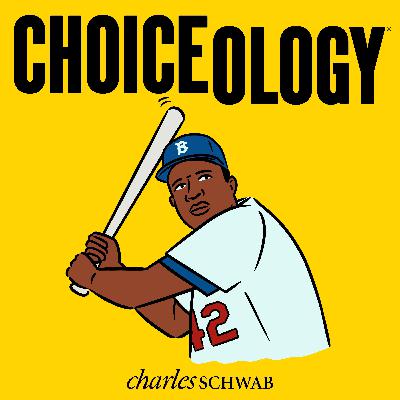

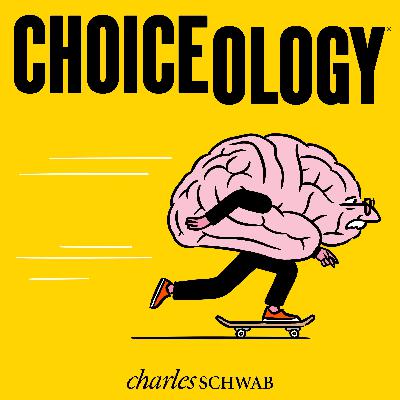
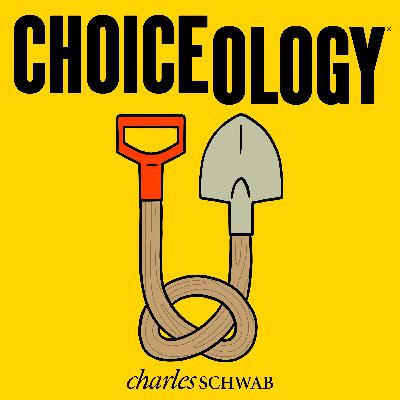
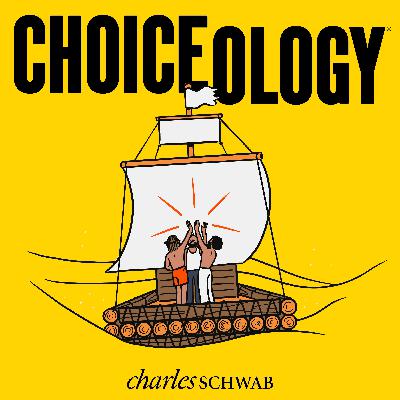
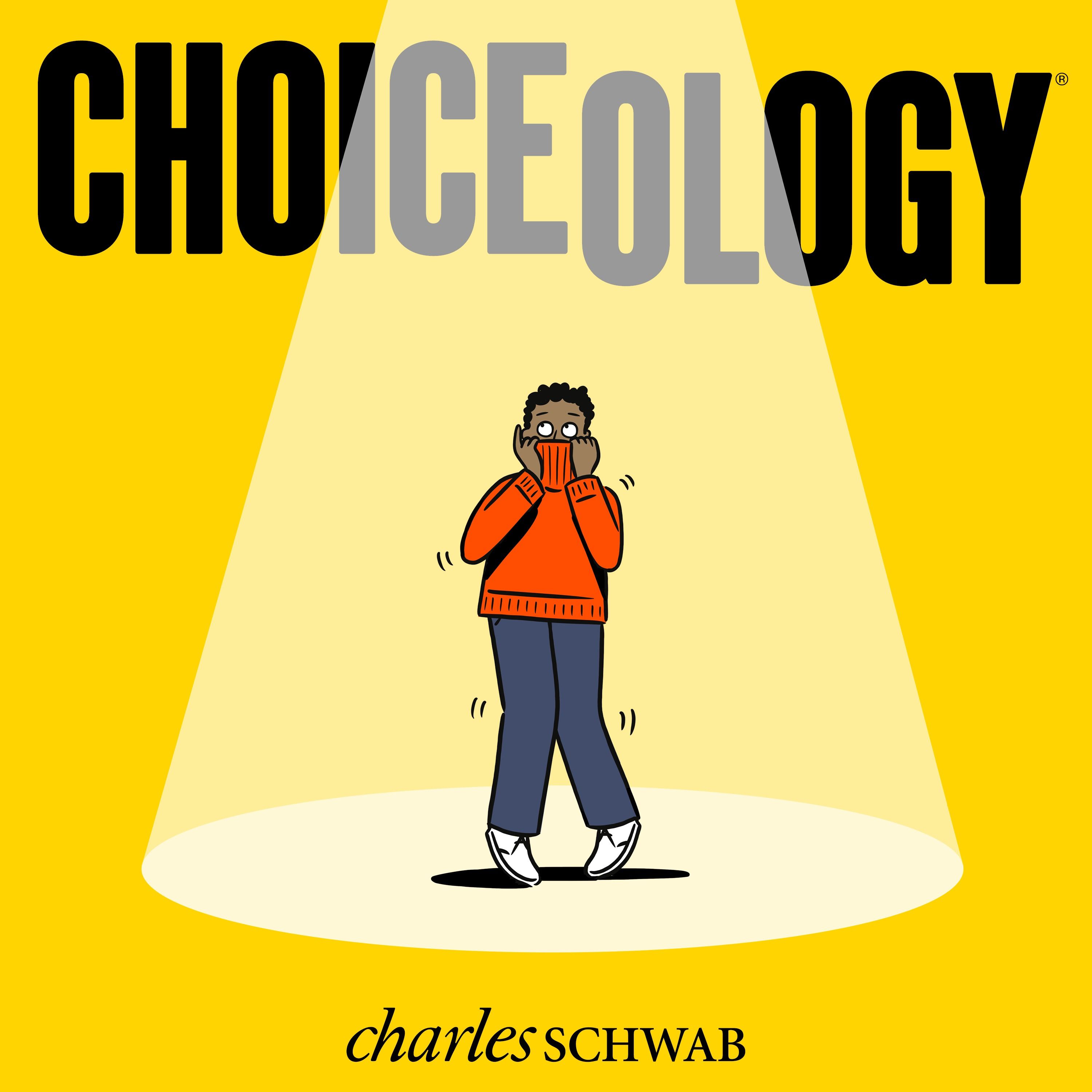
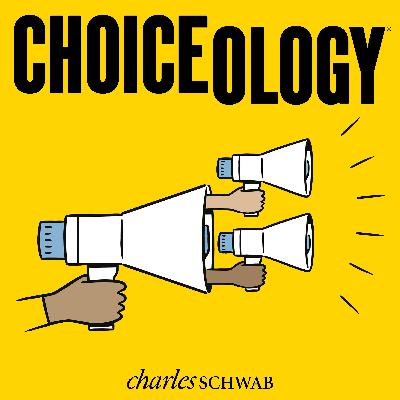
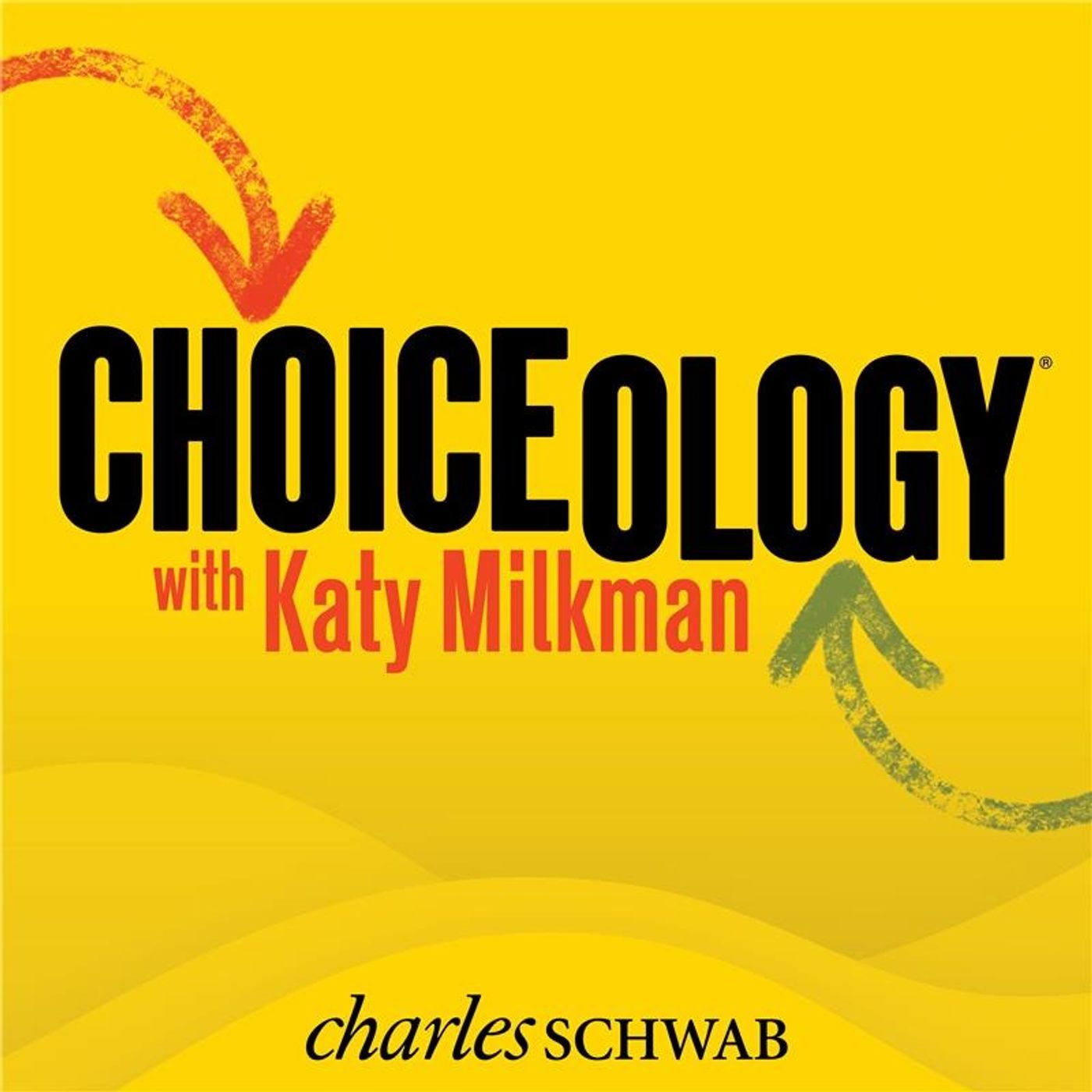
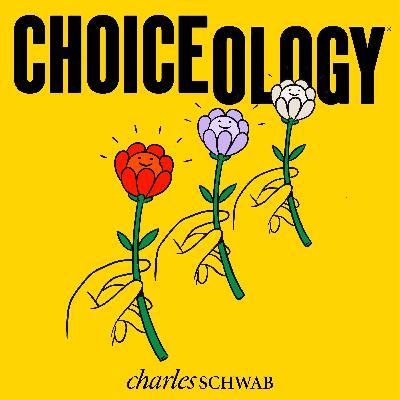
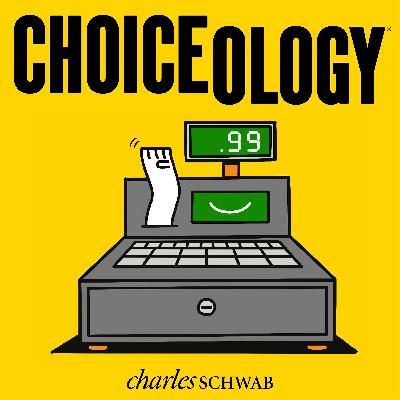
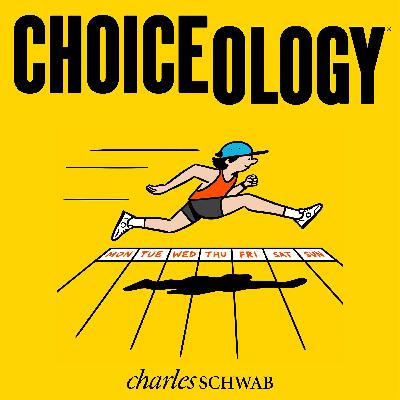
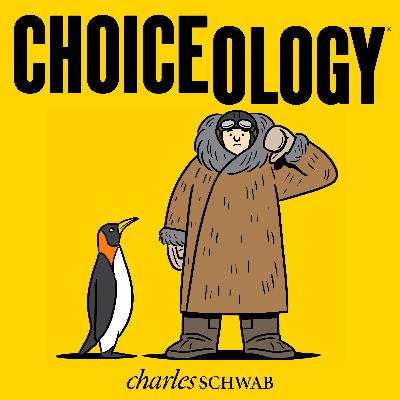
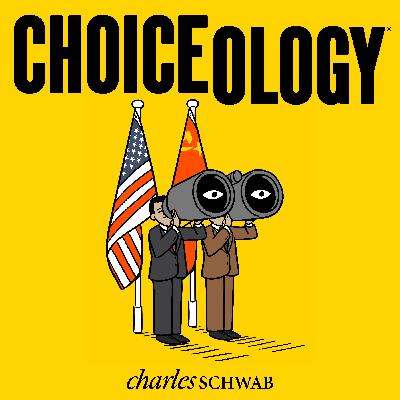
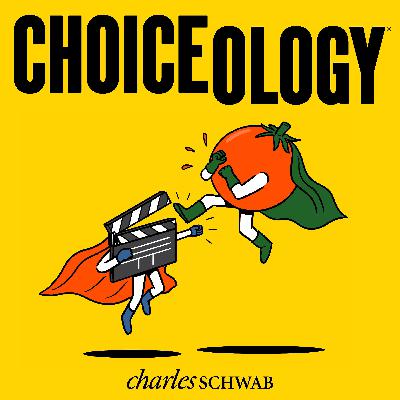








Well done!
Always good stuff with this podcast!!! I see one of your guests swore off the ever so popular among some, pretentious pronunciation of his last name. LOL.
I get it, but it's still better to work alone in certain situations.
Thess podcasts are very good evergreen content.
Well done episode. Nice hat tip to Kahneman.Intresring take on Bruce Lee utilizing peak-end lense.
great episode enjoyable and informative! worth the time I gave for a second listen.
long term goal - fun - give up too early
This podcast is the gold strike that makes all the mining worth while.
MIR. Productivity probably is better compensated, but it has limitations as you explain...to be cont..
It was so interesting and revealed a great insight towards me❤
love love love this show!
Interesting
Felt like this episode was filled with: 1. Productivity bias - the belief that the sum utility of an action comes from the end result produced. It doesn’t account for the psychological benefits like - the self perception of autonomy and control (which is immensely vital to healthy human minds), the utility gained from the pleasure of performing the action. Productivity bias is just plain harmful if followed through in excess. Sure machines are more efficient than humans, in fact machines are so efficient at everything that you can literally argue successfully to plug humans into a set up, feed them intravenously, send impulses to their brain which stimulates flavour and texture, have them live their lives virtually - while machines do the real life stuff - producing more for humans whose sole purpose apparently is to consume and be productive. This might seem excessive in the case of self driving cars, but the condescension and lack of ability to understand why humans might not want t
Lovely episode!!
I love your podcasts but I couldn't finish this one, it's a slow torture to listen to Richard Thaler speak.
situs yang wajib untuk dikunjungihttp://199.192.20.84/arenaqq/
I am instantly in love with this podcast. I get smarter after every episode.
great topics
sound is not clear
Amazing!